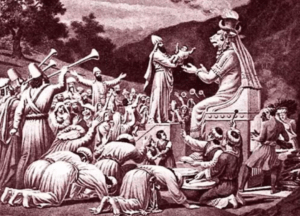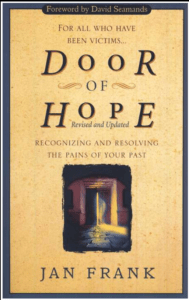
Our founding fathers believed that government derives its just powers from the consent of the governed. Great Britain disregarded its own laws in its attempt to force the colonies to pay harsh taxes in order to rebuild its treasury following what is known as the French and Indian War, whereby Great Britain expanded its power in North America and worldwide. The colonies believed they were being denied the rights of ordinary Englishmen because they had no representation in Parliament and no voice in what taxes they had to pay. Great Britain resorted to what had always worked before, demanding obedience to the authority of the Crown. When the colonies refused, things gradually escalated into war, one that launched a nation and a great experiment in representative government. The US Constitution set up a republic in which people could vote into office those who would represent them in the legislative, judicial, and executive branches of government. From a biblical perspective, did God mean for government to derive its just powers from the consent of the governed, or is that a purely humanistic concept?
We can start with a well-known passage from Romans.
Everyone must submit to governing authorities. For all authority comes from God, and those in positions of authority have been placed there by God. 2 So anyone who rebels against authority is rebelling against what God has instituted, and they will be punished. 3 For the authorities do not strike fear in people who are doing right, but in those who are doing wrong. Would you like to live without fear of the authorities? Do what is right, and they will honor you. 4 The authorities are God’s servants, sent for your good. But if you are doing wrong, of course you should be afraid, for they have the power to punish you. They are God’s servants, sent for the very purpose of punishing those who do what is wrong. 5 So you must submit to them, not only to avoid punishment, but also to keep a clear conscience. Romans 13:1-5 (NLT)
On the surface, it appears that government is not derived from the consent of the governed but from God. This has always been my position and that of many Christians. We clearly see from the above passage an important first principle. All authority originates and emanates from God. The reason is simple. He is the Creator and Sustainer of the universe, who by virtue of being those two things has all authority. We have ownership over what we create, especially if the continued existence of that created thing depends on our continually upholding it through our choice and power.
Any governmental authority that exists among created beings is derived from the Creator, since none existed before he created us nor does any exist outside of what he created.
The Creator delegated great responsibility and commensurate authority over his creation to his first humans, Adam and Eve.
Then God said, “Let us make man in our image, after our likeness. And let them have dominion over the fish of the sea and over the birds of the heavens and over the livestock and over all the earth and over every creeping thing that creeps on the earth.” 27 So God created man in his own image, in the image of God he created him; male and female he created them. Genesis 1:26-27 (ESV)
The LORD God placed the man in the Garden of Eden to tend and watch over it. Genesis 2:15 (NLT)
Adam was made the governor of the earth to care for it and guard it. This is the purpose of government from the beginning, which Paul reiterates in the passage quoted from Romans above.
When government properly represents God, it will care for and protect its people against all who would bring harm. Anything that deviates from this purpose might be considered illegitimate. Certainly any government that violates its own laws must be so.
Our founding fathers certainly believed this about the government of Great Britain, when it failed to uphold its own laws or protect the rights of its people.
Satan, who is a created being, has no inherent authority, only that which has been usurped from others.
Passivity or foolishness on the part of the one having authority can allow others to manipulate, usurp, or otherwise use that authority for their own evil purposes.
We see this clearly in the case when Queen Jezebel used King Ahab’s authority to orchestrate the murder of Naboth and the theft of his vineyard. (1 Kings 21) We also see this in Genesis when Satan conspired to steal Adam’s authority by inciting him to rebel against the Creator. By deceiving him and Eve into disobedience against God, the first couple chose allegiance to Satan over God, ceding their authority to the devil.
Do you not know that if you present yourselves to anyone as obedient slaves, you are slaves of the one whom you obey, either of sin, which leads to death, or of obedience, which leads to righteousness? Romans 6:16 (ESV)
He has used that authority over us malevolently.
It is vital that we understand that this transfer of authority came with the consent of the governed. In other words, due to their naivety and lack of fidelity, Adam and Eve chose to serve Satan and relinquish authority to him by becoming his slave.
Satan uses authority in a completely different way from God. Whereas the Creator imparts life and blessings, the devil only comes to steal, kill, and destroy. (John 10:10)
God operates through truth, but the devil must always resort to lies, since no one would ever choose to serve him otherwise. God wants his people to consent to come and remain under his governance by telling us the truth and offering life. Unfortunately humans seem to be wired to naturally believe a lie and resist the truth. Thankfully, the Holy Spirit overcomes this in those who God has chosen to be his own. (John 6:44)
Satan lies to manipulate people to gain their consent to be governed malevolently by him. No one would agree to be robbed, murdered, and generally destroyed; yet, through skillful deception, Satan actually gets people to choose those things.
The devil promises to be our benefactor and friend, while actually destroying his subjects. He must laugh at us continually.
Lying or, to use the modern term, misinformation, is the key to Satan’s ongoing scheme.
Jesus told his disciples that knowing and practicing truth will set us free. (John 8:31-32) Satan uses bold lies to deny and hide truth. The bolder the lie the better, it seems.
God told Adam and Eve in the garden that if they ate from the tree of the knowledge of good and evil they would die. The serpent categorically denied God’s truth, telling Eve that she would not die, but instead be like God. Eve fell for the lie hook, line, and sinker. The rest is a sad history of mankind’s lack of ability to discern or resist Satan’s continuing deceptions, even when we know that they always lead to death and destruction. Fool me once…
Let us now skip forward to our own time to see how this continues to work. If Satan only derives his authority and power from the consent of those he deceives into following him, then he must continually convince us to chose him over God, lies over truth, and death over life. A case in point is the abortion issue. Now that the Supreme Court is apparently on the verge of nullifying the unconstitutional Roe v. Wade ruling from 1973, the Left, which is largely an arm of the devil, is ramping up their resistance. Why is there such vehement insistence that women be granted the right to kill their unborn babies? Is it merely a staunch defense of women’s rights or something more?
Child sacrifice has long been enshrined in the worship of Chemosh and Molech in the Old Testament. We know from Scripture that idols represent demonic beings that empower them. Paul wrote this enlightening passage.
What am I trying to say? Am I saying that food offered to idols has some significance, or that idols are real gods? 20 No, not at all. I am saying that these sacrifices are offered to demons, not to God. And I don’t want you to participate with demons. 21 You cannot drink from the cup of the Lord and from the cup of demons, too. You cannot eat at the Lord’s Table and at the table of demons, too. 1 Corinthians 10:19-21 (NLT)
All demons serve Satan, including those connected to Chemosh and Molech. These pagan deities demanded the blood of infants. People willingly sacrificed their children in order to gain some sort of occult spiritual advantage from them. There is one particularly intriguing passage at which we should look.
When the king of Moab saw that he was losing the battle, he led 700 of his swordsmen in a desperate attempt to break through the enemy lines near the king of Edom, but they failed. 27 Then the king of Moab took his oldest son, who would have been the next king, and sacrificed him as a burnt offering on the wall. So there was great anger against Israel, and the Israelites withdrew and returned to their own land. 2 Kings 3:26-27 (NLT)
In this instance, evil power was released against Israel when the king of Moab sacrificed his son to the devil. This man willingly killed his son to enlist Satan’s power to defeat God’s people, which was granted. This was an extreme case which we may consider barbaric, but was it any less gruesome and horrific than modern day mothers choosing to execute over 60 million of their own unborn babies in the United States alone since 1973? The king of Moab wanted victory over his enemies. What do modern Americans want? Most of the time mothers kill their unborn babies to avoid embarrassment, inconvenience, career interruptions, or economic hardship. Some have more humanitarian reasons, such as protecting their own health in the case of extremely hazardous pregnancies. Most of these women probably have been deceived, as was Eve, into thinking that these babies are not really human beings at all, just blobs of tissue. They do not understand God says he knew them before the creation of the world and personally formed them in the womb. Those unborn infants may be just tissue to these mothers, but to God they are beloved children. Some have said they rejoice in their abortions, many others rue having aborted their child or children. Thankfully, God offers forgiveness, if we turn to him with a repentant heart.
Let us remember that, even though sometimes we must fight in physical wars, our ultimate battle is a spiritual one. (Ephesians 6:12) We are engaged in a spiritual battle between the kingdom of God and the realm of darkness and evil ruled by Satan. We understand that even though Christ dealt a death blow to Satan and his kingdom when he rose from the dead, God in his wisdom has permitted us, his people, to be part of the “clean up operation” here on planet earth. It is our Lord’s intention that his people have the privilege of crushing Satan under our feet. (Romans 16:20)
This verse references the promise made to the serpent in the garden way back in Genesis that one of Eve’s descendants would crush the serpent’s head. (Genesis 3:15) Many consider this to be the very first messianic promise in the Bible. Jesus fulfilled this already, but we his people will be part of the final act in this great cosmic drama unfolding over the centuries.
All will be over when Jesus appears in the clouds with great glory, just as he promised. Until then, we are living through an intense contest between two opposing kingdoms for the hearts of people. Each kingdom is enlisting the consent of people to be governed by their respective kings.
Each kingdom has a different leader, goals, sources of power, and ways of doing business.
Our Lord Jesus the Messiah is the captain of God’s forces in heaven and on earth. Satan commands his evil minions. God’s goal is to redeem and restore his fallen creation. Jesus is the Creator, Sustainer, Redeemer, and Judge. Satan’s goal is to usurp God’s place, dishonor him, and destroy as many people as possible. He is a liar, murderer, thief, and destroyer. The source of power in God’s kingdom is the Holy Spirit. Jesus has all authority in heaven and on earth, but the Holy Spirit carries out and enforces his commands. God’s authority and power is expanded, so to speak, as more and more people acknowledge Jesus as Lord and come into agreement with his purposes and plans. Under the Spirit are legions of angels ready to do God’s will.
The source of malevolent power behind Satan is derived from what he stole from humans.
The devil only has power when humans have given it to him and continue to do so.
Satan is an enslaver. Everything he does has that as part of his plan. Despite how obvious is Satan’s hatred for mankind, we seem to be rather stupid in that we repeatedly fall for the same lies. In fact, many think of him as a benefactor. People under his thumb choose to serve and honor him, ensuring that the stolen authority he has remains intact. This is part of what is behind idol worship and the cult of Lucifer or Satan worship.
Cultures where the gospel does not have the ascendancy often have certain rites in place to appease the demon “gods” and keep them on “our side.” Some villages in Africa and Asia annually make sacrifices to these demonic beings, thereby memorializing the ceding of God-given human authority to the devil.
When people accept Christ as Lord, Satan’s power over them is over.
When the seventy-two disciples returned, they joyfully reported to him, “Lord, even the demons obey us when we use your name!” 18 “Yes,” he told them, “I saw Satan fall from heaven like lightning! 19 Look, I have given you authority over all the power of the enemy, and you can walk among snakes and scorpions and crush them. Nothing will injure you. 20 But don’t rejoice because evil spirits obey you; rejoice because your names are registered in heaven.” Luke 10:17-20 (NLT)
Those of us who have have put our faith and allegiance in Jesus the risen Lord and King have been rescued from the kingdom of darkness and transferred into the kingdom of God. (Colossians 1:13)
When Jesus rose from the dead, he triumphed over Satan and his evil authority and power; however, just as God left enemies in the Promised Land for Israel to overcome in battle by faith, our Lord did not immediately remove Satan and his demons from the earth. Multitudes of human beings still willingly serve the devil.
God’s kingdom also operates through people’s willingness to declare allegiance to the true King, Jesus the Messiah. The gospel is a proclamation that God will forgive the rebelliousness of his people and restore them to his glorious kingdom, if they will accept his offer to be reconciled to him through Christ.
There was the true Light which, coming into the world, enlightens every man. 10 He was in the world, and the world was made through Him, and the world did not know Him. 11 He came to His own, and those who were His own did not receive Him. 12 But as many as received Him, to them He gave the right to become children of God, even to those who believe in His name, 13 who were born, not of blood nor of the will of the flesh nor of the will of man, but of God. John 1:9-13 (NASB)
The acknowledgement that Jesus is Lord, therefore, is the keystone of the gospel and the undoing of our alliance with Satan.
As more and more people consent to be governed by the Lord Jesus, Satan’s power and authority on earth is further weakened. Therefore, the proclamation of the gospel is our greatest spiritual weapon.
The door is still open for people to change sides and come back to God.
The enemy uses people to infiltrate and use the power and authority connected with human governments to further his kingdom’s objectives. There is a push across the globe to move us into a one world government that will be tyrannical, enslaving, and anti-God.
God’s government always produces freedom. Satan’s always enslaves.
The only way for Satan’s plan to work is for masses of compliant people to willingly surrender to it. Of course, this requires a massive amount of deception, since no one in his or her right mind would choose to follow the lord of death.
Just as some cultures repeatedly offer animal sacrifices to demonstrate their allegiance to the devil, we also have such a blood sacrifice in our country.
I believe that the power source used by the demonic realm has been child sacrifice through legalized abortion.
The Supreme Court’s decision to nullify Roe v. Wade is an answer to prayer and a direct threat to Satan’s power grid, so to speak. We should expect all hell to break lose as Satan’s minions try to stop this from happening.
How odd it seems to watch the Left violently protest for the right to kill babies. You would think this would be sufficient to “wake up” vast numbers of people to the horrors of child sacrifice. But just as Eve looked upon the fruit from the tree of the knowledge of good and evil and thought it was beautiful, delicious, and able to make her wise, modern “man” looks at abortion as a “right” and an avenue to greater freedom and fulfillment, not for a moment understanding Satan’s horrific plan.
The tragedy of mothers choosing to destroy their own unborn children has to be one of Satan’s greatest deceptions and triumphs.
Our nation has been given a golden opportunity to rid ourselves of one of our most egregious affronts to God, the shedding of innocent blood. This great sin of the state sanctioned murder of infants keeps the threat of God’s judgment hanging over the nation like a sword of Damocles. Since Roe v. Wade was passed, which used the courts to bypass the legislative process and opened the door to legalized murder in this country, some sixty million unborn babies have been put to death. Most of this slaughter has been hidden from public view within the confines of abortion clinics and hospitals, but God has seen every last drop of innocent blood that has been shed. This blood cries out to God for vengeance. Thank God that Jesus’ blood cries out for mercy!
The Bible teaches that life is in the blood (Genesis 9:5). God holds people, cities, and nations accountable for the shedding of innocent blood (Numbers 35:33). The guilt for all the innocent blood shed by the abortion industry is shared by those who promote it to gain spiritual power, the politicians who champion it to gain and maintain political power, the providers – doctors, clinics, hospitals, and other medical personnel, who have tapped into the wealth this industry supplies, and those who procure their services for whatever selfish reasons. Our entire nation will be held accountable for what we allowed to happen under our watch. When judgment falls, even those who were not directly involved usually are affected. Sometimes the Lord’s judgment falls immediately, but often God delays judgment, allowing it to accumulate (Matthew 23:35-36). But we can be sure that God will not be mocked: we will ultimately reap what we sow (Galatians 6:7).
Thankfully there is hope for those who come to realize the horrendous nature of abortion and ask God for forgiveness.
The Bible says that without the shedding of blood there can be no forgiveness (Hebrews 9:22). This is why Jesus had to shed his blood on the cross on our behalf. It was the only way to atone for our sins. He offers to forgive anyone who comes to him in humility and faith, but unless a person or nation turns to God in repentance and finds forgiveness in Christ’s atoning sacrifice, he, she, or they eventually will encounter God’s wrath. I am understandably troubled, as I hope you are, when I contemplate how much wrath has been accumulating due to the travesty of abortion which has piled up such an enormous death count over almost fifty years.
If I am correct, the overturning of Roe v. Wade is an existential threat to the Left, because it will likely cause them to lose their “sacrament” of abortion and their source of evil power. If I am wrong about abortion being the Left’s link to evil power, I am not in error concerning its being part of a demonic plot to bring down God’s righteous judgment for the shedding of innocent blood upon our nation.
May God lift this horrendous weight of judgment from us as we repent and mend our ways at a national level. May God protect us from the violence and ugliness that the Left is sure to unleash upon the nation as we attempt to unplug them from their evil source of power and remove ourselves from God’s looming judgment. We cannot afford to be passive onlookers in this battle between light and darkness. The least we can do is pray and declare the truth to others.
















